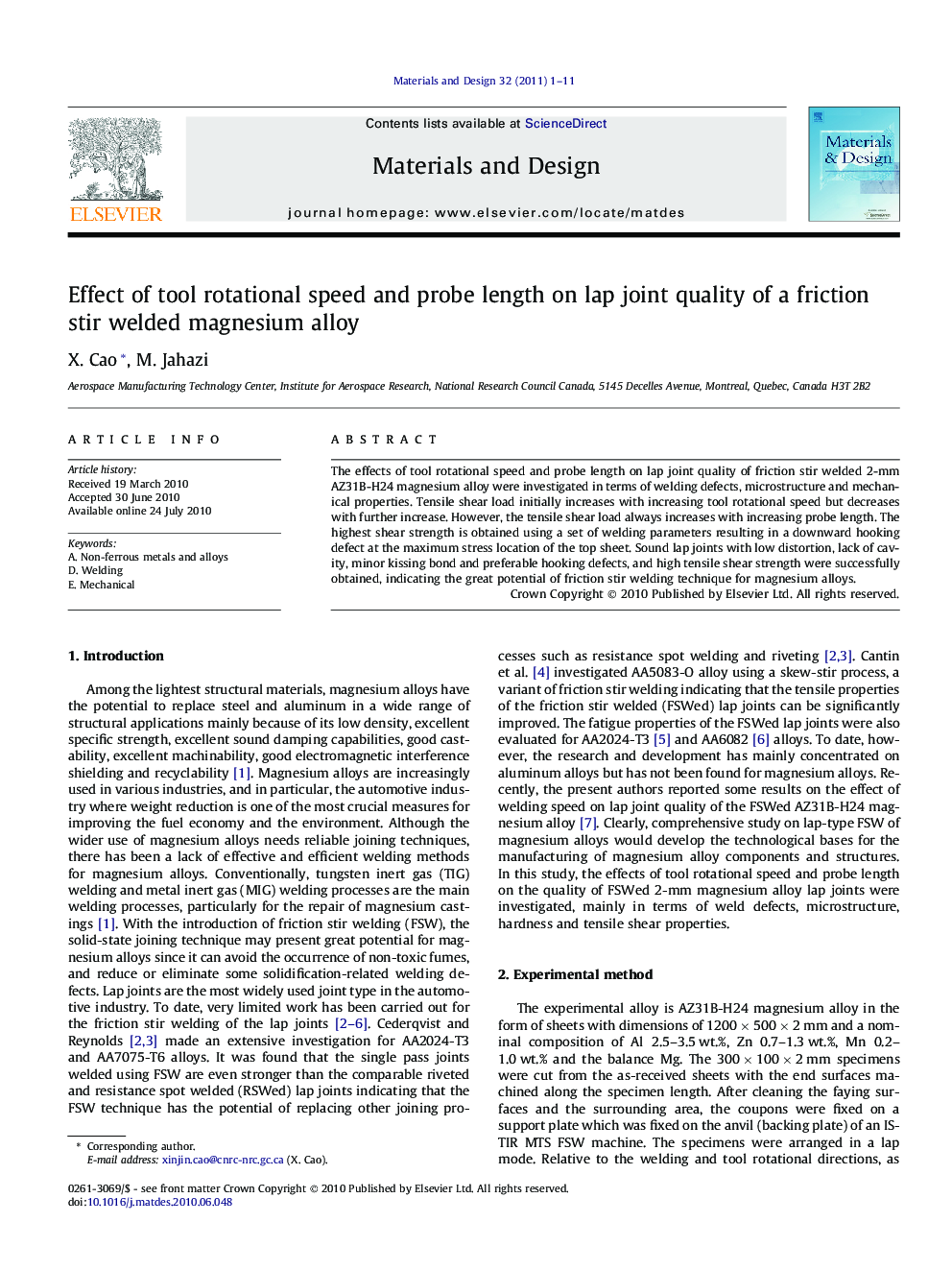| Article ID | Journal | Published Year | Pages | File Type |
|---|---|---|---|---|
| 831688 | Materials & Design (1980-2015) | 2011 | 11 Pages |
The effects of tool rotational speed and probe length on lap joint quality of friction stir welded 2-mm AZ31B-H24 magnesium alloy were investigated in terms of welding defects, microstructure and mechanical properties. Tensile shear load initially increases with increasing tool rotational speed but decreases with further increase. However, the tensile shear load always increases with increasing probe length. The highest shear strength is obtained using a set of welding parameters resulting in a downward hooking defect at the maximum stress location of the top sheet. Sound lap joints with low distortion, lack of cavity, minor kissing bond and preferable hooking defects, and high tensile shear strength were successfully obtained, indicating the great potential of friction stir welding technique for magnesium alloys.
